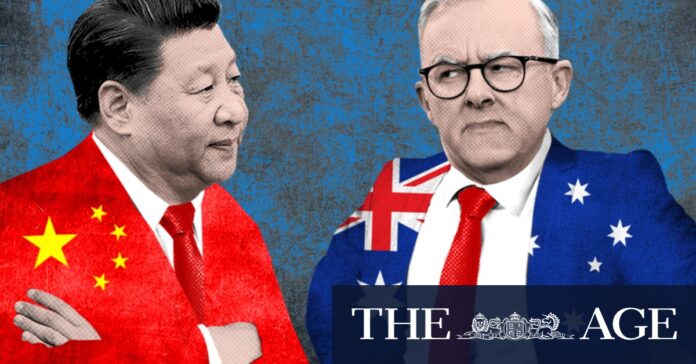[ad_1]
“This is driven by the perception that these investments offer lower upfront financial risks and the potential for high long-term rewards. Such investments also help Chinese investors avoid the complexities and entrenched challenges associated with merging or acquiring existing businesses in Australia.”
Loading
Still, Chinese investment in areas such as solar panels is causing international tension. US Treasury Secretary Janet Yellen in a visit to China this month expressed concern about Chinese overproduction in areas such as electric vehicles, solar panels and other clean energy technology.
In 2023, the cost of producing solar panels in China fell by 42 per cent, giving its manufacturers an enormous cost advantage over international rivals, particularly the US, according to energy analysts Wood Mackenzie. China dominates the global production of solar panels, representing 80 per cent of the market.
The KPMG and University of Sydney report said a further reason Chinese investment in Australia had declined was that Chinese money was increasingly being redirected towards Belt and Road Initiative (BRI) projects. Last year, Chinese investment in those projects rose 28 per cent to $US32 billion.
China’s BRI policy aims to bolster its economic and security interests with multiple nations through overseas development. Investment in BRI projects accounted for a quarter of China’s $US130 billion in non-financial foreign direct investment last year.
The report warned that the growth in Chinese investment in BRI projects posed a competitive threat for Australian business, as funds shifted from developing infrastructure to supporting processing sectors. “Such a move could present competitive challenges in sectors where Australia has historically attractive investment.”
An example of this threat was the billions of dollars of Chinese investment that flowed into Indonesia, helping it develop into a global nickel hub. The investment and technology from Chinese companies enabled Indonesia to process raw ore into higher-grade nickel, which Australia had done.
With this improved capability, Indonesian nickel has flooded the market, forcing down the price of the metal, which has hurt Australian miners, and resulted in cuts to jobs and production. China is the world’s largest buyer of nickel.
However, research by the Lowy Institute released last month was more cautious on BRI-financed infrastructure projects in South-East Asia. It noted that funding allocated to many of those projects had been cancelled or downsized because of cost blowouts, local political instability and China’s own economic pressures.
China’s economic growth is forecast to slow to 4.5 per cent this year from 5.2 per cent, according to the World Bank, as high debt, a weak property sector, and trade frictions take a toll.
The Business Briefing newsletter delivers major stories, exclusive coverage and expert opinion. Sign up to get it every weekday morning.
[ad_2]
Source link



